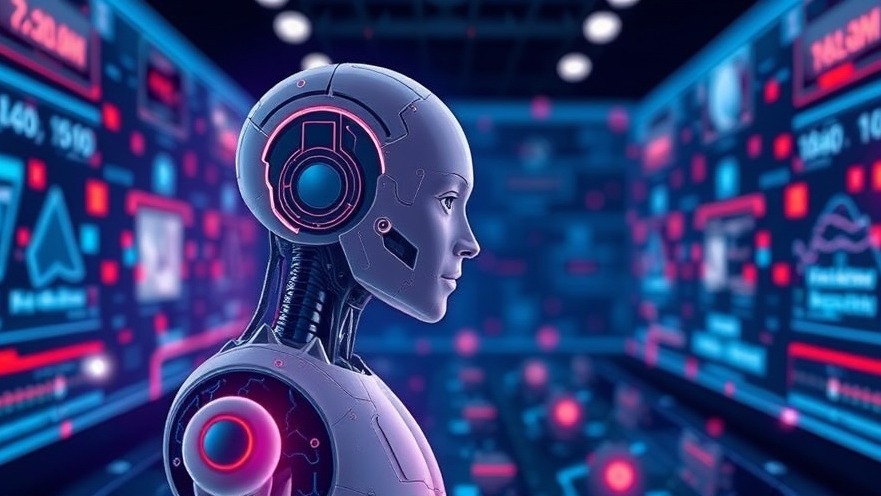
The Rise of AI Agents: Transforming Business Operations
Artificial Intelligence (AI) has swiftly transitioned from a concept of the future to a force shaping the present-day business landscape. The buzz around AI agents—intelligent systems that perform tasks autonomously—is rising as companies look to streamline operations and enhance productivity. Chip Rosales, Managing Partner at Rogue Marketing, recently interviewed AI marketing expert Gary Haymann, Co-Founder of SmythOS, discussing the transformative potential of AI agents for business automation.
What Are AI Agents and How Do They Work?
AI agents operate as intelligent assistants designed to automate and simplify complex workflows. Unlike traditional software, these agents leverage cutting-edge technologies such as natural language processing, machine learning, and deep reasoning capabilities. They can understand context, learn from previous interactions, and make decisions to carry out specialized tasks across various sectors.
For instance, take projects like SmythOS’s AgentWeaver, a platform enabling businesses to create AI agents through a straightforward chat interface. This democratizes access to automation, allowing organizations to develop agents without extensive technical know-how.
Why Companies Cannot Afford to Ignore AI
Businesses that hesitate to integrate AI into their operations risk falling behind their competitors. AI agents provide substantial benefits, such as automating repetitive tasks and streamlining workflows. In fact, reports indicate that around 70% of Fortune 500 companies are actively leveraging AI technologies like Microsoft 365 Copilot to conquer mundane tasks, thereby enhancing workforce efficiency.
Real-World Benefits of AI Agents: A Case Study
A striking example comes from the Canadian cinema giant, Cineplex, which developed a customer service copilot that reduced handling time for support inquiries dramatically—from 15 minutes to 30 seconds. This efficiency not only improved customer satisfaction but also allowed human agents to engage in more complex customer interactions.
Looking to the Future: Trends and Predictions in AI Automation
The future of AI agents appears promising, with advancements expected in hyperautomation, digital twin technology, and AI-augmented workforce models. As businesses adopt these intelligent agents, we can anticipate a shift in roles, allowing human employees to focus on innovation and decision-making—a necessity in a competitive market.
The Need for Implementation: Steps Toward AI Adoption
Integrating AI agents into an organization requires a strategic approach. Identifying specific, high-impact use cases for automation is the first step, followed by pilot projects to evaluate performance. Companies should consider employing intuitive platforms, which, like Functionize, allow users to create agents without delving into code, thus fostering an environment of innovation and adaptability.
Conclusion: Why You Should Embrace AI Agents Now
AI agents are set to become indispensable in modern business practices, providing significant efficiencies that will define the future landscape. The question is not whether to adopt this technology, but rather how quickly your organization can integrate intelligent automation into its workflow. To harness the tremendous potential of AI-driven solutions, organizations must act swiftly to remain relevant and proactive.
 Add Row
Add Row  Add
Add 




 Add Row
Add Row  Add
Add 

Write A Comment